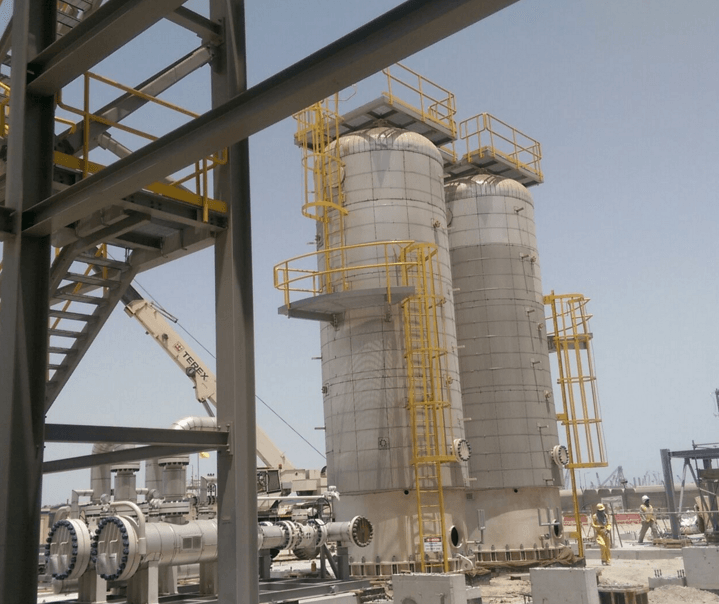
“Oil is a force for good,” Saudi Arabia’s oil minister, Ali Al-Naimi, recently said, but low oil prices have contributed to social and economic chaos in many countries rich in hydrocarbon reserves.
Many of these nations have established annual spending budgets based on oil prices that range from $60 to $80 a barrel. So, the current price -- hovering around $40 per barrel -- has finance ministries scrambling. Some countries, such as Qatar, have some wiggle room, as Bloomberg reported that it needs oil priced at least around $55 a barrel for a balanced budget. Other countries that are notorious for squandering their oil wealth, including Nigeria and Venezuela, need oil to surge up to $120 a barrel in order to fund their spending plans. Nigeria’s oil minister, however, said $60 a barrel oil is “tolerable,” because, after all, the World Bank has figured that at least 45 percent of his country’s people lack access to power anyway.
It's against this backdrop that oil ministers from OPEC countries met in Doha, Qatar, earlier this week. Their goal was to see if they could all find a way to freeze production in order to bring price stability -- defined, of course, by their point of view.
Analysts generally assume the Saudis have instigated the push to lower prices in order to kill off the shale oil industry in the U.S. and to thwart Iran’s reemergence as a global oil producer as international sanctions are lifted. Some have also assumed these chess moves are also an attempt to first scuttle the COP21 climate talks in Paris, and in addition, to sabotage the global clean-energy sector — though clearly, the evidence suggests a worldwide surge in renewables is underway despite low oil prices. Bloomberg, in fact, has suggested the global investment in clean-energy technologies actually increased in 2015 to over $329 billion.
So, in an effort akin to rearranging the chairs on the Titanic, OPEC members agreed in January to convene in Doha in order to find a way to curb production. Saudi Arabia and some of its allies, including the United Arab Emirates, balked at the idea. But it grew clear any hopes that the “market would correct itself” were growing faint.
The announcement of that meeting alone helped oil creep up in price, from a historic low of under $30 a barrel in January to its current price at just over $40. But infighting within and outside OPEC was clearly not a solution, as Iran, along with non-OPEC member Russia, kept generously pumping oil -- keeping prices far lower than other oil-producing states would prefer.
The meeting in Doha ended this week without any agreement, in part because Iran refuses to decrease its oil production. But this was also a battle going far beyond numbers and volume.
As Reuters pointed out, two days before the Doha talks launched, the leaders of Iran and Saudi Arabia clearly gave each other the cold shoulder during a summit of the Organization of Islamic Cooperation in Istanbul. The continuing mistrust between the Saudis and Iranians, who are both vying to be the center of power and influence in the Middle East, spilled over into the Doha meeting.
To make a long story short: Saudi Arabia asked Qatar to rescind its invitation of Iran to the Doha OPEC meeting, Qatar said no, and the meeting ended in acrimony. In fact, OPEC does not even mention the Doha gathering on its website, although its most recent press release discusses its condolences to Ecuador following the massive earthquake that killed hundreds of people on Saturday.
The stubborn fact that OPEC refuses to acknowledge is that its members are on the losing side of economics, technology and history. The deep cuts in oil prices have not affected the U.S. much as electricity production is increasingly coming from natural gas. And despite cheap oil prices, all of the major automotive companies are still investing in electric vehicle research and development. Sales of electric cars are increasing worldwide, including within the U.S. and China.
Some leaders within these countries, including Saudi Arabia and its close ally, the UAE, are getting the message, as they are slowly gravitating toward renewables in part to diversify their economies.
But if the richer OPEC countries are to continue funding generous social welfare programs for their citizens -- and if its poorer members will ever be able to improve the quality of life for their people -- the time for the oil giants to recalibrate their strategy was yesterday.
Image credit: Leon Kaye

Leon Kaye has written for 3p since 2010 and become executive editor in 2018. His previous work includes writing for the Guardian as well as other online and print publications. In addition, he's worked in sales executive roles within technology and financial research companies, as well as for a public relations firm, for which he consulted with one of the globe’s leading sustainability initiatives. Currently living in Central California, he’s traveled to 70-plus countries and has lived and worked in South Korea, the United Arab Emirates and Uruguay.
Leon’s an alum of Fresno State, the University of Maryland, Baltimore County and the University of Southern California's Marshall Business School. He enjoys traveling abroad as well as exploring California’s Central Coast and the Sierra Nevadas.














